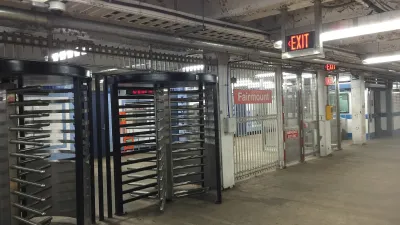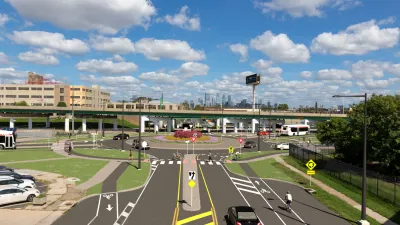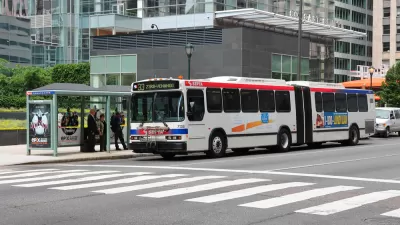An investigation by the Philadelphia Inquirer finds that Philadelphia is owed $423 million in "nuisance liens" or unpaid bills for the city's Department of Licenses and Inspections. The city has only collected $15.6 million in owed liens since 2009.
Claudia Vargas describes the troubling list of 39,391 properties with "nuisance liens" or "unpaid bills for sealing, cleaning, or demolition done at taxpayer expense by the Department of Licenses and Inspections." That is, "[work] that building owners were supposed to pay for but didn't."
The monetary total of those liens equals $423 million according to the article by Vargas. "The figure rivals a better-known one: the half-billion dollars Philadelphia is owed in uncollected real estate taxes plus penalties and interest." Or, for that matter, "the Philadelphia School District's $440 million deficit."
"Officials say they have ramped up efforts in the last year by suing owners for unpaid demolition bills. But they also cite the positives of forgiving some liens….With thousands of properties waiting to be disentangled from liens, the city has to juggle its options. If a lien is wiped off the books as part of a deal to sell a property and make way for taxable development, such as homes or businesses…that's a good outcome for the city."
The article details more of the troubling findings of the Inquirer investigation into the nuisance liens, such as the $17 million in liens "for demolition and other nuisance work done between 1978 and 1999 on properties for which addresses and owners' names are missing."
FULL STORY: Philadelphia owed a half-billion dollars in 'nuisance liens' - maybe

Trump Administration Could Effectively End Housing Voucher Program
Federal officials are eyeing major cuts to the Section 8 program that helps millions of low-income households pay rent.

Planetizen Federal Action Tracker
A weekly monitor of how Trump’s orders and actions are impacting planners and planning in America.

Ken Jennings Launches Transit Web Series
The Jeopardy champ wants you to ride public transit.

Crime Continues to Drop on Philly, San Francisco Transit Systems
SEPTA and BART both saw significant declines in violent crime in the first quarter of 2025.

How South LA Green Spaces Power Community Health and Hope
Green spaces like South L.A. Wetlands Park are helping South Los Angeles residents promote healthy lifestyles, build community, and advocate for improvements that reflect local needs in historically underserved neighborhoods.

Sacramento Plans ‘Quick-Build’ Road Safety Projects
The city wants to accelerate small-scale safety improvements that use low-cost equipment to make an impact at dangerous intersections.
Urban Design for Planners 1: Software Tools
This six-course series explores essential urban design concepts using open source software and equips planners with the tools they need to participate fully in the urban design process.
Planning for Universal Design
Learn the tools for implementing Universal Design in planning regulations.
Heyer Gruel & Associates PA
Ada County Highway District
Institute for Housing and Urban Development Studies (IHS)
City of Grandview
Harvard GSD Executive Education
Toledo-Lucas County Plan Commissions
Salt Lake City
NYU Wagner Graduate School of Public Service





























